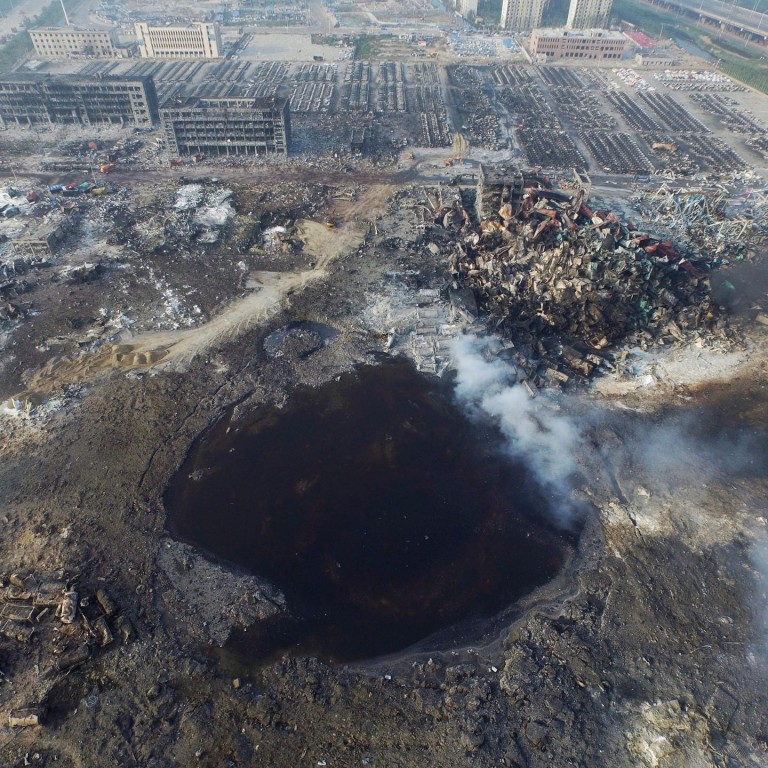
'700 tonnes' of sodium cyanide reportedly in warehouse during deadly Tianjin blasts
Chinese officials investigate claims of sodium cyanide 70 times more than the permitted amount stored at Ruihai site
A large discrepancy over the precise quantity of hazardous chemicals being stored at a warehouse in the port area of Tianjin at the time of Wednesday night's two deadly blasts is just one of the many unanswered questions surrounding the tragedy, which has claimed at least 85 lives.
has reported that 700 tonnes of sodium cyanide - a highly toxic substance that can kill rapidly if inhaled - were being stored the warehouse owned by Ruihai International Logistics, according to a claim by the owner of a Hebei chemical company that owned the substance - 70 times the permitted amount.
Yet a report by the government's environmental inspectors in 2014 noted that Ruihai was permitted to temporarily store up to 10 tonnes of sodium cyanide.
Two blasts ripped through an industrial area of the port at about 11.30pm on Wednesday - the first smaller blast was equivalent to three tonnes of TNT detonating - followed by a larger second blast about 30 seconds later, equivalent to 21 tonnes of TNT detonating.
An official at Tianjin's work safety watchdog told a press conference yesterday that it was likely sodium cyanide and many other hazardous chemicals, had been stored at the warehouse, but provided no further details.
However, as of late last night, Ruihai had made no public statement regarding the explosions at its warehouse; neither had it released the names or quantity of hazardous chemicals that had been stored there.
Zhi Feng, the company's general manager, remains in Tianjin's Teda Hospital, after suffering head injuries as a result of the blasts.
A doctor told Prism, Tencent media group's financial news outlet, that Zhi was now conscious and had been moved out of intensive care into a general ward. He has been accompanied by family members and is being guarded by police around the clock. Many journalists have tried to contact him, but without success.
An unnamed official at Tianjin's environmental protection bureau said he was shocked by the claim that Ruihai might have been storing 700 tonnes of sodium cyanide in the warehouse at the time of the blast.
The company would have been breaking the law if such a quantity was correct.
"Either that figure of 700 tonnes - which has yet to be verified, is untrue - or that company if facing serious allegations," the official told the .
"If 700 tonnes of [sodium cyanide] were being stored, this would have been 70 times more than the permitted amount," the official was quoted as saying.
At a press conference on Thursday, Gao Huaiyou, deputy director of Tianjin's work safety watchdog, said there were "large discrepancies" between the amount of chemicals Ruihai's manager claimed it was storing in the warehouse and the figure obtained from customs officials.
The questioned whether the discrepancy meant Ruihai might have been involved in smuggling dangerous chemicals.
The company has made no public statement in response to such claims.
Members of the public also questioned how the privately owned Ruihai had obtain licences to store such hazardous chemicals near residential areas.

